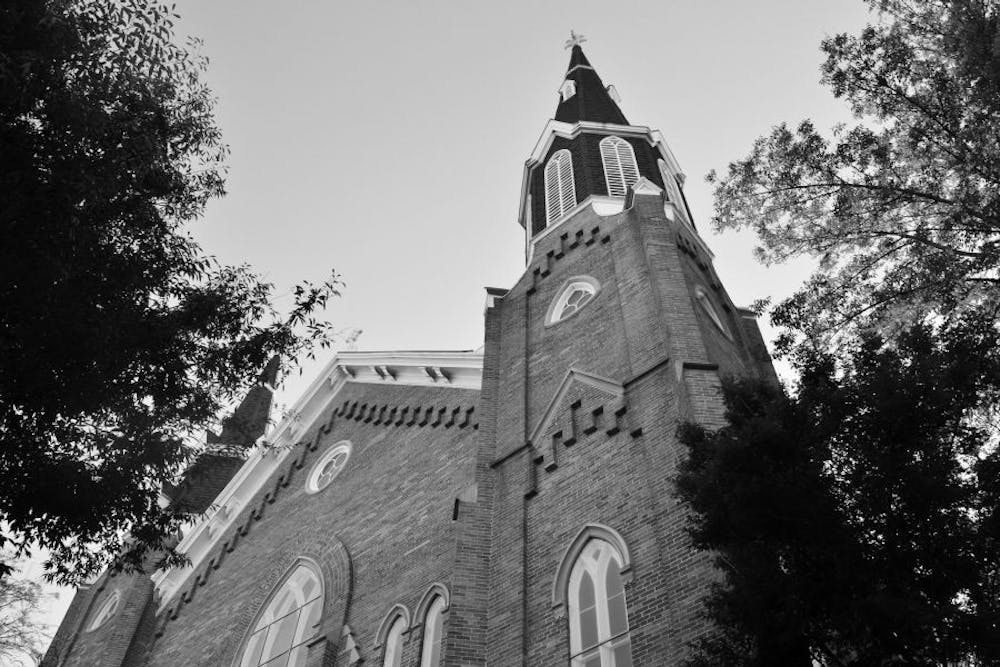By Elise Vasko, For The Miami Student
Walking down East High Street, it is easy to pass by several historic homes without even realizing it. Yet, on this one street alone there many of these houses, each with its own unique history. Despite its small size, Oxford has 12 historical sites recognized on the national register.
These incude Elliott and Stoddard Halls, Hunting Lodge Farm, Langstroth Cottage and the William H. McGuffey House. A complete list of these sites can be found on the City of Oxford website.
"I don't think many students know about Oxford's history," said first-year Sarah Martin. "All history is important because it contributes to the town and the community and what Oxford stands for and how Miami came to be."
One particularly significant historical site is the McGuffey Museum. The museum is located on eastern campus at the site of William Holmes McGuffey's former residence. McGuffey was a Miami professor in the 1860s who compiled the widely used "McGuffey Eclectic Reader." The reader taught students lessons in reading, spelling and moral conduct.
"The McGuffey Museum is fascinating because the person that lived there invented basically an elementary school textbook that was used nationwide," said Sam Perry, a city planner. "He invented it and he didn't make a penny off of it, hardly, but he was from here and he was an administrator here, so that's a really strong educational tie to the local culture with national history."
Langstroth Cottage, located near Bachelor Hall, has national landmark status. The cottage was home to Lorenzo L. Langstroth, who invented the moveable beehive and became known as the "Father of Modern Beekeeping."
"If you think about that in context with international agriculture, that is pretty staggering," Perry said. "That beehive is used across the world now. It's pretty amazing."
Oxford residents not only value the town's many historical sites, but also the older, historical homes around Oxford.
Michael Kohus, local resident and chair of the Historical Architectural Preservation Commission, volunteers his time to maintain some of the older homes in the community.
"Our goal is to try to keep some continuity with the historical elements of the city of Oxford as best we can," Kohus said. "What we're trying to do is keep that small town feel. We're just trying to preserve the character of Oxford."
Valerie Elliott, author of "Images of America: Oxford," and manager at Smith Library of Regional History, agreed about the importance of Oxford history, its character and traditions.
"It's the history of the communities that makes them distinct and different from others. Otherwise, if everything was the same there would be no interest," Elliott said. "It's the character of the communities and what they preserve of their histories that makes them different from others. Preserving some of those things enriches everyone's lives."
Oxford's history is tied to Miami, as one would not exist without the other.
"The most unique thing about Oxford's history is that somebody had the foresight to start a college basically in the middle of nowhere," Perry said. "There was nothing here and somebody said, 'Let's put a college here.' If it weren't for that foresight, none of us would be here. It was at the frontier."

